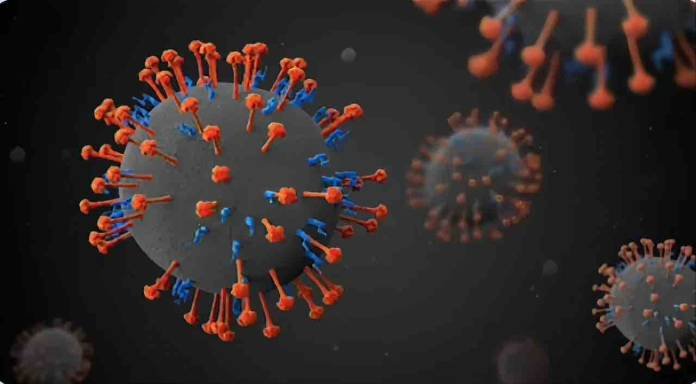Before just diving in, do you know where the virus came from?
The Nipah virus(NiV) first emerged in Malaysia and Singapore in 1998 as an outbreak of disease in pigs and people. The outbreak affected almost 300 people and led to over 100 deaths. It also had a big impact on the economy because more than 1 million pigs had to be killed to try to stop the outbreak.
What exactly is the Nipah virus and how is it going to impact us?
NiV is a type of virus that belongs to a family called Paramyxoviridae and a group known as Henipavirus. This virus is considered to be a zoonotic virus that means the virus can spread from animals to humans, and the main animal responsible for carrying this virus is a type of fruit bat, also known as the flying fox. Fruit bats can pass on the Nipah virus to people or other animals.
People can catch the Nipah virus (NiV) by being in direct contact with infected animals like bats or pigs, or coming in contact with their body fluids like blood, urine, or saliva. It can also spread if you consume any food item that has been contaminated by an infected animal’s fluids. You can even catch it by being in close proximity with an individual who has NiV through nasal or respiratory droplets, urine, or blood.
Let’s understand the symptoms of the Nipah virus.
When someone is infected with the Nipah virus, they first experience symptoms like fever, headaches, muscle pain, vomiting, and a sore throat. As the illness progresses, it can lead to severe respiratory problems, encephalitis (swelling of the brain), seizures, and in some cases, even a coma. According to the World Health Organization (WHO), there is currently no specific medication or vaccine available for the treatment of Nipah virus infection as of now and it has been categorized as a priority pathogen by the World Health Organization (WHO), emphasizing the need for immediate attention to research and development efforts. As per the Indian Council Of Medical Research(ICMR), the mortality rate of Nipah virus is much higher than Covid.
During a press conference at the ICMR headquarters in New Delhi on September 15, 2023 Dr. Rajeev Bahl, the Director-General of ICMR, highlighted that “Mortality among the infected is very high in Nipah (between 40 and 70 percent) compared to the mortality in Covid, which was 2-3 percent.” ICMR says that monoclonal antibody doses need to be given during the early stages of Nipah virus infection.
Nipah Virus Resurfaces in Kerala: Two Lives Lost, Communities on High Alert.
The state of Kerala in southern India is currently grappling with its fourth outbreak of the Nipah virus since 2018, which is causing significant concern. According to the latest information, two people have lost their lives due to the virus. One of them was a 49-year-old man named Mohammed Ali, who lived in Maruthonkara village, and he passed away on August 30. The other person was a 40-year-old named Mangalatt Haris from Ayanchery town, and he succumbed to the virus on September 11. The Kerala health minister, Veena George, has mentioned that there are currently two active cases in Kozhikode.
These cases involve a nine-year-old boy and a 24-year-old relative of one of the individuals who died. In response to the virus outbreak, the state government has implemented several measures. They have declared 7 villages in Kozhikode as containment zones, shut down schools, and issued guidelines to discourage gatherings and public events, including events and activities held at places of worship. Moreover, the nearby districts surrounding Kozhikode remain vigilant in responding to the situation. It is of utmost importance that we exercise responsibility by consistently adhering to preventive measures such as frequent handwashing, sanitization, and refraining from entering the affected area.
Sources: Centers for Disease Control and Prevention. : The Indian Council Of Medical Research (ICMR). By, Shreya Kaushal.
